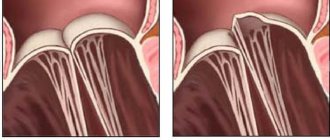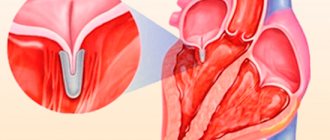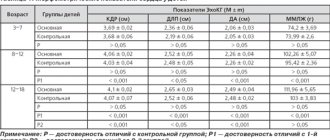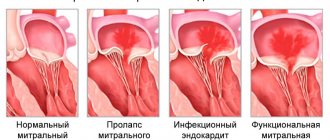- home
- Articles
- Schedule of illnesses
- Prolapse and the army
»
»
»
Updated: November 24, 2021
Free hotline for conscripts and their parents
8
Will they join the army with mitral valve prolapse? It is impossible to answer this question unequivocally, because the decision of the draft commission directly depends on the severity of the disease and the stage of its development. In this article we will talk about in which cases this diagnosis is not a reason for granting a deferment from service, and in which cases you can immediately receive a military ID.
Causes of MVP
Reasons include:
- Occupational hazards;
- Unfavorable environmental conditions;
- Possible genetic predisposition;
- Connective tissue pathologies;
- Pathologies of the chords of the heart.
Main clinical manifestations:
- Palpitations and interruptions in heart function;
- Tachycardia;
- Presence of shortness of breath during physical activity;
- Fatigue and weakness.
- Fainting is possible.
Physical restrictions and loads during MVP
A mitral valve defect in itself is not a contraindication to physical activity and sports.
It all depends on the degree of regurgitation, the presence of signs of chronic heart failure (CHF), cardiac arrhythmias, and episodes of loss of consciousness. All people with MVP with stage I regurgitation are prohibited from the following physical exercises:
- boxing;
- sports that require jerking movements - javelin or discus throwing, shot put, wrestling, jumping;
- lifting weights.
Types of sports and physical exercises that are allowed for MVP with I degree of regurgitation:
- Athletics;
- sport swimming;
- exercise in the gym - lifting weights not exceeding your own body weight is recommended. Preference should be given to aerobic exercises (cardio exercises);
- dance training - only those types of dance are allowed that do not involve lifting a partner;
Sports allowed for stage II regurgitation:
- table tennis;
- figure skating (without lifting your partner and sudden jumps);
- swimming (amateur);
- gymnastics;
- a ride on the bicycle.
Any type of sport and physical activity (except physical therapy) is strictly prohibited in the following situations:
- mitral regurgitation degree III;
- pain in the heart area;
- there are serious heart rhythm disturbances: prolonged QT interval, paroxysmal tachycardia, atrial fibrillation, frequent polytopic extrasystoles;
- the presence of signs of congestive heart failure - swelling in the legs, heaviness in the right hypochondrium, difficulty breathing during physical work;
- there were episodes of loss of consciousness (fainting).
For patients with the above symptoms, intense physical activity can sharply worsen their health and cause dangerous complications, which without urgent medical intervention can end very badly.
As for physical therapy (physical therapy), it will be useful for patients with any degree of mitral regurgitation. These exercises are based on increasing endurance and aerobic reserves of both the whole body and the heart.
Examples of exercises:
- high raises of bent legs;
- circular movements of the arms forward and backward;
- circular movements of the hips;
- body turns;
- walking or running slowly.
General recommendations for exercise therapy classes:
- Maintain a moderate pace of movements.
- Breathing should be smooth.
- The duration of one workout should not exceed 30 minutes.
- The total training time per week is about 150 minutes.
- During exercise, you need to monitor your heart rate. It shouldn't be too high. Calculating the limit that cannot be exceeded is quite simple - you need to subtract your age from 200. If the pulse is higher than this value, you should take a short break (1-2 minutes) and continue at a more relaxed pace.
PMC degrees
Depending on the severity of the valve leaflet defect, prolapse can be:
1st degree – sashes deflection from 3 to 5.9 mm. The closure of the valves is complete, as a result of which symptoms may not appear;
2 degrees – from 6 to 8.9 mm. The leaflets do not fit tightly, there is regurgitation (backflow of blood from the ventricle into the atrium);
3 degrees – from 9 mm or more. The valves are not adjacent to each other, and acute left ventricular failure may occur.
Each degree has its own severity of regurgitation:
1st degree – a slight wave of reverse blood flow at the level of the valves;
2nd degree – moderate regurgitation with a wave rising to the middle of the left atrium;
3rd degree – a pronounced wave of backflow of blood to the middle of the left atrium;
Grade 4 – severe, the wave of regurgitation reaches the opposite end of the atrium.
Danger of prolapse
Mitral valve prolapse is a disease that most often develops during adolescence. If there are no complications, then it is asymptomatic. In some cases, patients may experience chest pain, shortness of breath, palpitations and dizziness.
Prolapse is often accompanied by serious complications. One of these is mitral regurgitation. The left atrium pumps blood into the left ventricle through the mitral valve.
Regurgitation is when the valve does not close completely, causing some of the blood to return to the left atrium.
This violation has several degrees.
Stages of MVP
There are two stages of MVP - primary and secondary stage of morbidity.
- The primary stage of mitral valve prolapse is considered a congenital syndrome
- Secondary MVP develops as a complication of any disease.
In addition, there are degrees of displacement of the mitral valve leaflets:
| I degree | II degree | III degree |
| 3-6 mm. | 6-9 mm. | 9 or more mm. |
Mitral valve prolapse and the army
What are the general eligibility categories?
- G - fit for service;
- GO - fit for service with minor restrictions;
- VN - temporarily unusable;
- GPS - unfit for service in peacetime;
- NGI - unfit for service with exclusion from military registration;
- State Tax Service - fit for service outside the formation in peacetime
- IND – fitness category determined individually for a conscript
Mitral valve prolapse refers to article 42 or 80 of the schedule of diseases, depending on the cause of occurrence, from which it follows:
- A conscript with grade 3 or 2 MVP with impaired intracardiac hemodynamics receives the NGI fitness category.
- In case of grade 2 MVP without disturbance of intracardiac hemodynamics and grade 1 with regurgitation of grade 2 or more, the CGM suitability category is assigned.
- The GO suitability category includes grade 1 MVP without disruption of intracardiac hemodynamics and with grade 1 regurgitation.
To confirm the diagnosis and fitness category, the conscript should contact a specialist.
Do they take into the army with prolapse?
Prolapse of the 2nd and 3rd degrees can be exempt from the army. Such forms of the disease are often accompanied by disturbances in the functioning of the heart, so patients require lifestyle adjustments. You have to give up overwork, don’t be nervous, and refrain from heavy physical activity. The military lifestyle during these stages can be detrimental to the hearts of sick conscripts.
The conditions for exemption from the army for prolapse are specified in Article 42 of the Schedule of Diseases. The military registration and enlistment office determines the suitability category based on whether the conscript has:
- Severe heart rhythm disturbances;
- Conduction disorders;
- Heart failure.
When assessing heart failure, doctors take into account its functional class (FC).
There are 4 classes:
- FC I – heart disease does not require changes in physical activity. Normal exercise does not cause symptoms of heart failure (shortness of breath, rapid heartbeat, weakness).
- FC II - symptoms appear during normal physical activity, but disappear at rest.
- FC III – shortness of breath, irregular heartbeat rhythms with little physical activity.
- FC IV - symptoms appear even at rest.
According to the Schedule of Diseases, those with mitral valve prolapse are recruited into the army if the disease is accompanied by heart failure FC I. They can also be drafted in cases where the disease is asymptomatic, does not cause discomfort and does not require hospital treatment. In each of these cases, the military registration and enlistment office assigns the conscript a “B-4” fitness category.
The situation is different if the patient has increased mitral regurgitation. Conscription into the army with prolapse in such cases can lead to new complications: mitral regurgitation, arrhythmia or infective endocarditis. Therefore, with increased regurgitation, the conscript also has a chance of being exempt from military service. Exemption from conscription is also granted to young people whose illness is accompanied by disturbances in heart rhythm, conduction, or heart failure FC II.
Stage 3 of the disease is the most pronounced. An increase in the deflection of the valve walls leads to a significant outflow of blood. Against the background of increasing regurgitation, significant disruptions in the functioning of the circulatory system develop. As a result, cerebral circulation and heart rhythm are disrupted, and heart failure appears. If there are serious complications, the army and prolapse are not compatible.
When examining the question of whether people with prolapse are accepted into the army, I relied on legislation. However, as practice shows, draft commissions do not always make a lawful decision and issue the fitness category that must be assigned by law. Therefore, remember: if you do not agree with this decision, you have the right to appeal it to a higher draft commission or court.
How can we help?
Often conscripts do not know their illnesses, where to go and where to be examined in order to confirm diagnoses and have the right to a deferment or exemption from the army. We employ specialists with extensive positive experience and this is confirmed by reviews from our clients. We guarantee qualified assistance, advice and support from specialists until you receive a military ID or a refund of 50% of the cost of services in the event of a different decision by the draft commission.
You study, work, you have many plans for life. Are you worried about your career or further studies? Are you a law-abiding citizen, but do you think that military service could worsen your health? Contact us and, if you have the right not to serve, we will help you prove it!
Medical examination at the military registration and enlistment office
The physical and emotional stress of military service can lead to significant deterioration in health. Young people must provide a package of medical documents confirming the presence of the disease or verbally voice complaints about their health. Obtain a deferment from conscription from the military registration and enlistment office for additional examination. The diagnosis is confirmed by clinical data and echocardiography results.
What is included in the package of documents: - an outpatient card with data on a visit to a cardiologist; — echocardiogram (displacement of the mitral valve leaflets, thickening ≥ 5 mm); — an extract from the medical history with a confirmed diagnosis.
The conscript has the right to challenge the conclusion of the medical commission at the military registration and enlistment office (Federal Law “On Military Duty and Military Service”, paragraph 7, Article 28). If you disagree with the assigned category, you should file a complaint with a higher organization (city or regional military registration and enlistment office) and file a claim in court. It is important to collect all the necessary documents and complete them correctly. A lawyer can represent the interests of the plaintiff in court. You can sign up for a free consultation with specialized lawyers in Perm by calling
Get relief from regurgitation
Our legal experts help conscripts obtain a military ID for health reasons legally. We provide a free consultation, during which you can talk about your situation and ask questions to experts regarding regurgitation in a conscript. To get advice, you should contact the phone numbers listed on our website, and specialists will promptly help you.
In addition to consultations, our lawyers can accompany the conscript to the military medical commission and properly prepare him for the commission. We also help to collect all the documentation that may be required during recruitment events at the military commissariat. If you have been assigned a fitness category that you do not agree with, you can contact our company and we will help you appeal the decision to a higher military commissariat or in court.
Law company Povestok.Net®
We have been protecting the rights and interests of conscripts since 2015.
Services for conscripts ›
Reviews
Dear readers, was this article helpful? What do you think about mitral valve prolapse and military service? Leave feedback in the comments! Your opinion is important to us!
Maksim
“I learned about the diagnosis while undergoing commission into the army. There were no complaints before this. I was sent to serve with category B. I have been living for 4 years after the army. Everything is fine, nothing bothers me."
Anton
“MVP is often associated with other heart pathologies, so the diagnosis itself does not exempt you from the army, but if there are other pathologies, it will exempt you in total. They will be recognized as having limited fitness and will be assigned category B.”










